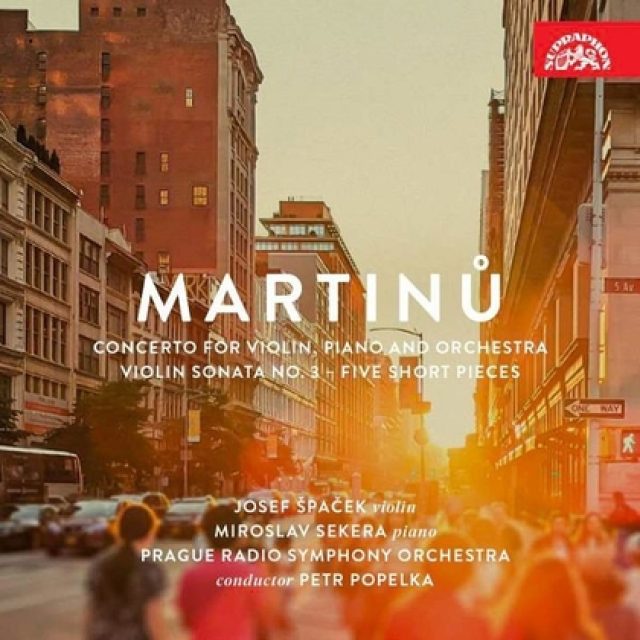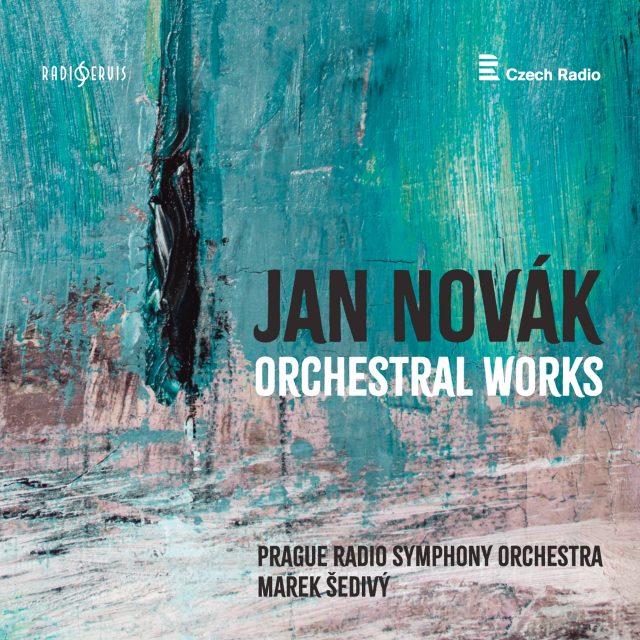Tomáš Brauner before the concert with music of B. Martinů
(This interview was conducted for the Radioraport section of the weekly Týdeník Rozhlas in connection with a Prague Radio Symphony Orchestra concert in the Dvořák Hall of the Rudolfinum on Monday 14 December.)
A year that you and the Prague Radio Symphony Orchestra have devoted to recording the complete piano concertos of Bohuslav Martinů with our leading pianists is drawing to a close. I presume that offer must have been pleasant to say the least?
I really got behind this unique project. I was glad that it arrived right at a time when I had just finished recording the final bars of Martinů’s complete works for cello and orchestra with Petr Nouzovský and the Pilsen Philharmonic. I had immersed myself deeply in Bohuslav Martinů’s oeuvre… What’s really interesting is that a different pianist from the ranks of the best Czech interpreters of the young generation was invited for each concerto. So we get to hear Ivo Kahánek, Igor Ardašev, Adam Skoumal, Martin Kasík, Václav Mácha, Karel Košárek and in the concerto for two pianos – like this evening Miroslav Sekyra – and Daniel Wiesner.
You surely encountered the piano intensively as a student. Did you enjoy playing it? And how is it today?
I started playing the piano at six, I believe. Well, playing – I banged on the keys and composed… I occasionally sat down at the instrument with relish; other times I was more thinking about the boys chasing about the playground outside. Today it seems incredible to me that I had private piano lessons every Friday evening in our panel-built apartment building. Over all the years nobody ever uttered a single word of rebuke to us. I guess I didn’t play so terribly…
But seriously, I later went in for the piano at the Prague Conservatory, where I really needed it for my conducting studies. I practiced quite often and a lot and continued to do so at the Academy of Performing Arts. Today I’m grateful for those hours of practise. I can play anything from a score or accompany a singer in rehearsals in a situation where there’s just no pianist.
How has your perception of the music of Bohuslav Martinů developed?
My first contact with Martinů’s work was very beautiful. I played a recording of the Oboe Concerto as performed by my father Jiří Krejčí. By mistake I put on the second, free part first. It is one of the most beautiful of all of Bohuslav Martinů’s free movements. That first, enchanting, powerful perception grew in me, becoming stronger during further encounters with Martinů’s music. I loved him so much that for instance at 16 I decided to travel by train to Pilsen for the opera The Miracles of Maria. An unforgettable experience.
This evening’s programme is framed by pieces by Dvořák and Suk. What’s your relationship to the Rhapsody and Fairy Tale?
A beautiful combination of two masters of the world of music, teacher and pupil, who are very close to me and without whom I’m can’t imagine my professional life. I’m glad that we’re performing Dvořák’s Rhapsody in A minor, full of melodic invention and which experts and lay people around the entire world never cease to admire. 23-year-old Josef Suk, devoted to his soon-to-be wife Otylka Dvořáková, created in Fairy Tale a work flowing with fervent lyricism and dramatic tension. Listeners of Suk’s music will likely by very familiar with the film adaption by director Petr Weigl starring Magdalena Vašáryová and Jan Tříska.
What awaits you in the near future with the Prague Radio Symphony Orchestra?
As soon as December an opera gala evening with Adam Plachetka and Kateřina Kněžíková at the Congress Centre in Prague, the opening concert of the Czech Touches of Music festival – it will be in the Spanish Hall with soloists Jitka Hosprová, Michaela Fukačová and Václav Hudeček – and next year two season ticket-holders concerts in the New Horizons series with very interesting programmes. I’m also looking forward to Smetana’s My Country at the music festival in Skuteč.



